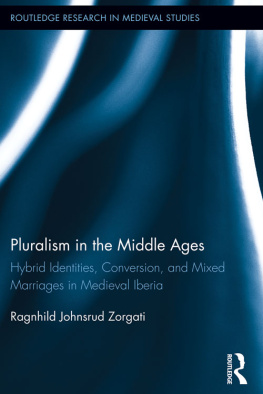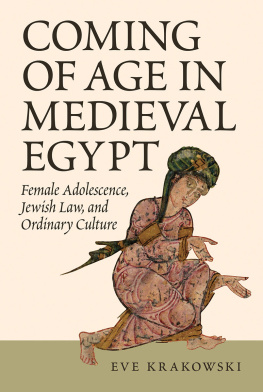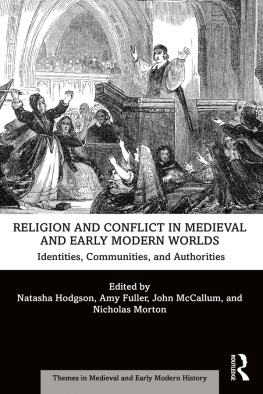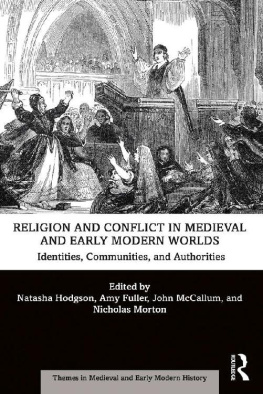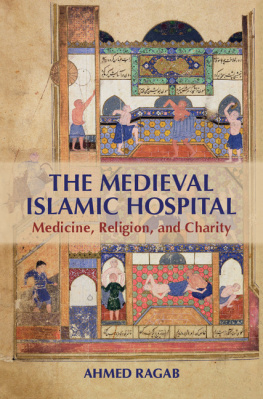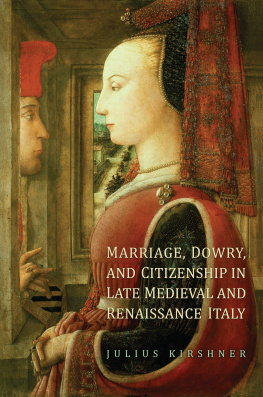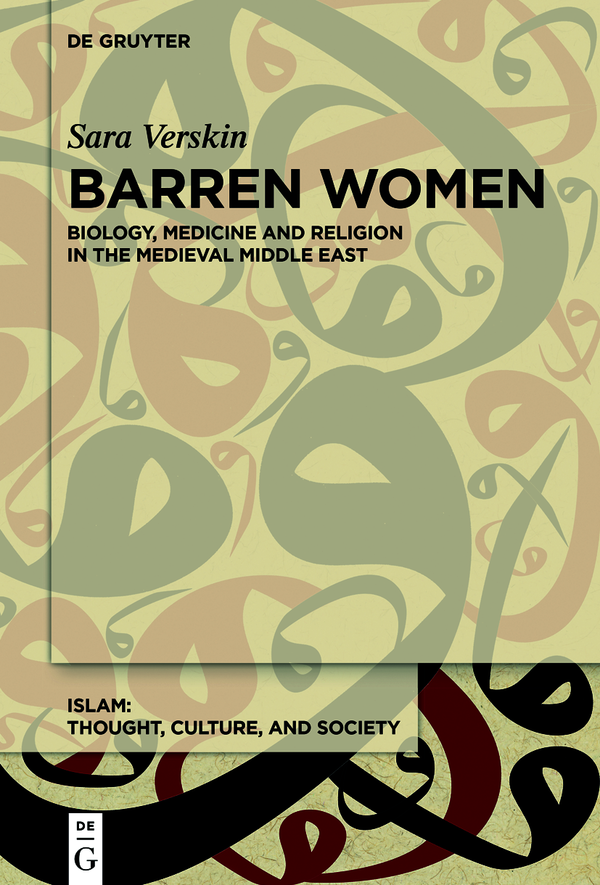Islam Thought, Culture, and Society
Volume
ISBN 9783110595673
e-ISBN (PDF) 9783110596588
e-ISBN (EPUB) 9783110593679
Bibliographic information published by the Deutsche Nationalbibliothek
The Deutsche Nationalbibliothek lists this publication in the Deutsche Nationalbibliografie; detailed bibliographic data are available on the Internet at http://dnb.dnb.de.
2020 Sara Verskin, Sara Verskin, published by Walter de Gruyter GmbH, Berlin/Boston // The book is published with open access at www.degruyter.com.
This work is licensed under the Creative Commons Attribution-NonCommercial-NoDerivatives 4.0 License.
For my mother and father
Acknowledgements
In the decade it has taken to produce Barren Women, I have been frequently struck by how, in weaving together the elements of this project, I keep reaching for old threads I first picked up long ago, handed to me by teachers and colleagues who at the time could not have known how much I would benefit from their knowledge and generosity. It is a pleasure to finally be able to offer them here some acknowledgement of their contributions to my scholarship.
Barren Women is based on the dissertation I wrote in the Department of Near Eastern Studies at Princeton University. It could not have been written without the guidance, patience, and good instincts of my adviser, Michael Cook. I am deeply grateful for his unceasing support for this project from start to finish. I am equally grateful for the scholarly culture he cultivated in the department and in the classes I took with him, from which I still continue to reap benefits long after having left the institution. He promoted an environment of academic good will in which senior and junior scholars respectfully solicited each others help with their research, generously gave each other their time and expertise, and publicly acknowledged their intellectual debts. Moreover, he taught me to allow my scholarship to be defined by my sources, and to allow those sources to lead me in new directions, even when they directed me away from my initial areas of academic comfort. As students in his courses, my classmates and I often looked at each other with exasperation and even fear as we found ourselves delving into books of numismatics and exploring Sogdian etymology. But it was that experience which convinced me that, when my studies took me in unexpected directions, it was my responsibility and my privilege to acquire whatever new knowledge I needed in order to continue, and to do so without sacrificing precision or seriousness. Some people call this approach interdisciplinary. From Professor Cook, I came to think of it as a mark of intellectual curiosity, playfulness, and tenacity.
This book is also marked by the instruction I received from my other teachers at Princeton University. It was in the stellar class on methodologies for studying the Middle East that M. kr Haniolu and Abraham Udovitch first introduced me to the complexities surrounding the study of womens history, and the debates I first encountered there have stayed with me. Hossein Modarressi taught me family law and guided me through my first serious research project on Islamic law, family planning, and the contested right to have children. Mark Cohen introduced me to the joys of Geniza research and the uses of cross-confessional social history. I am grateful to all of them.
Prior to my arrival in Princeton, I spent four formative and blissful years at the University of Chicago. In my first undergraduate year, I happened to enroll in a Bible course taught by the now late Tikva Frymer-Kensky, who introduced me both to the academic study of religious texts and to womens particular experiences of organized religion. The infectious enthusiasm of the late Farouk Mustafa drew me to Arabic studies. Fred Donners class on Mukhtaar al-Qudr served as my first introduction to Islamic law. But it was Wadad Kadis combination of towering erudition, charisma, and remarkable kindness, that permanently brought me into the fold of Islamic studies and set me on my current path. I am also much indebted to Helma Dik and to a good portion of the faculty of the Classics department of the University of Chicago, who provided a second intellectual home for me outside the field of Near Eastern languages and civilizations. They encouraged me to sit in on department workshops and colloquia, providing me with my first taste of the social experience of academic research. I would also like to thank John Craig for introducing me to the study of social and economic history, and for teaching me how to be creative in figuring out ways to do social history when sources are limited. Lastly, my gratitude goes to Wendy Olmsted who, in addition to encouraging me to become an academic, cultivated an idyllic atmosphere of intellectual enterprise in her classes. Her remarkably deft teaching of literature remains a model which I aspire to emulate.
Several people were kind enough to read my dissertation and provide recommendations for reshaping it into a book. I would particularly like to thank Eve Krakowski, Shaun Marmon, and Avner Giladi for their enthusiasm for the subject and for their thorough and thoughtful critiques and useful suggestions. I would also like to thank Andras Hamori and Monica Green for reading early drafts of what would later become chapters 6 and 7. I am grateful to all of them for their encouragement, wisdom, and collegiality. I would also like to acknowledge the members of a remarkable online community of scholars of medieval medicine, MedMed, led by Monica Green. I have benefited from their expertise in countless ways. Of course, any errors in my work are a reflection of no one elses shortcomings but my own.
In the course of my research I have greatly benefited from the support of my colleagues, classmates, students, and the administrators at my home institutions in the Near Eastern Studies department at Princeton and in the History department at Rhode Island College. I owe special thanks to the many librarians who went above and beyond the call of duty to help me along my way, especially at Princeton University. I would also like to acknowledge the librarians at the University of Minnesota, Columbia University, Brown University, the University of Rhode Island, and Rhode Island College who have aided me, especially those who patiently filled my seemingly inordinate number of interlibrary loan requests.
The publication of this book would not have been possible without the intellectual efforts and financial sponsorship of the British Association for Islamic Studies (BRAIS) and De Gruyter Publishers. I am grateful to the many BRAIS members who welcomed my scholarship and who received me so warmly when I was a stranger in their midst. I would particularly like to thank Omar Anchassi, Amira Bennison, Katrin Mittmann, Ayman Shihadeh, and Sophie Wagenhofer. I am also grateful to the Knowledge Unlatched organization for providing open access to this book.
When I first began my research, I was 23 years old and represented the youngest generation of my family. At the time, I had four living, beloved grandparents and great-grandparents, each of whom encouraged my work in their own way. Now I have only one grandparent still living and I have three children of my own, all of whom are now old enough to read the words of this book themselves, if not to fully understand their import. Through it all, I have benefited from my familys unceasing dedication and enthusiasm for my productivity, as well as for my fertility. In addition to providing me with love, support, space, and time for my work, my grandmother, brothers, father-in-law, and even a few more distant relatives have all read chapters of this book. Never once did I hear from them that my work was boring, inaccessible, or a waste of energy. Their patience with, and confidence in, me and my work has buoyed me up all this time.


